Product Custom Fields
Starting with Platform Version v3.222.0 Custom Fields support an allowed values List.
Product custom fields allow you to define key:value pairs for any product. For a given license, you can override the value of the product custom field with a license custom field value.
When you add a custom field to a product, all licenses for that given product will have that field added to them, and will show up on license checks and activations. This field will appear on the server responses if you do not override the value for that given license.
Example Use-Cases for Custom Fields
There are many ways you can use custom fields.
Here are a few example use-cases:
Creating a product tier. The key might be something like "edition" and the default value could be the lowest tier, such a "lite". For a given license you may change the default with "standard" or "pro"
Setting the number of CPU cores that a machine is allowed to run for your licensed application
Setting a grace period for requiring online license checks
We call a "Product Custom Field" the default key:value pair that you set for a given product, and a "License Custom Field" the key:value pair if you override the default value for a given license.
Add/Remove/Edit Product Custom Fields
Open the product detail page, and click on the "custom fields" tab
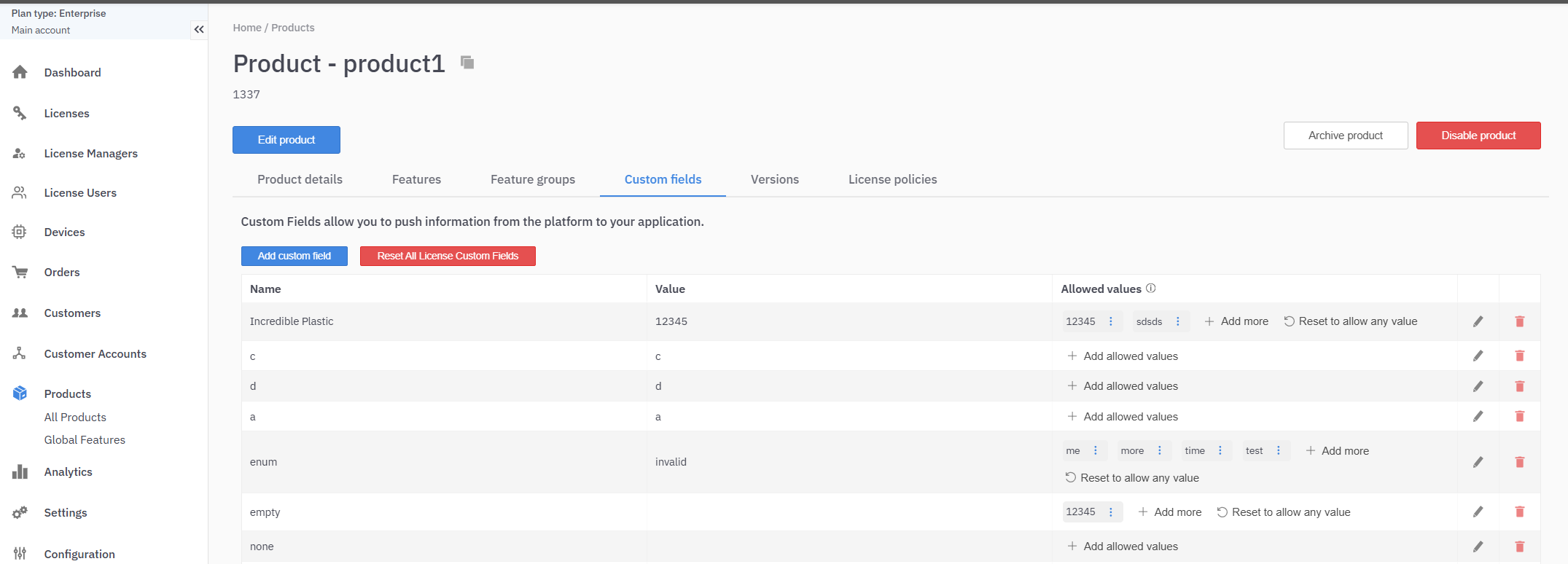
Adding a New Product Custom Field
To add a new product custom field, Click "add custom field", and specify a name (key) and value for your new custom field:
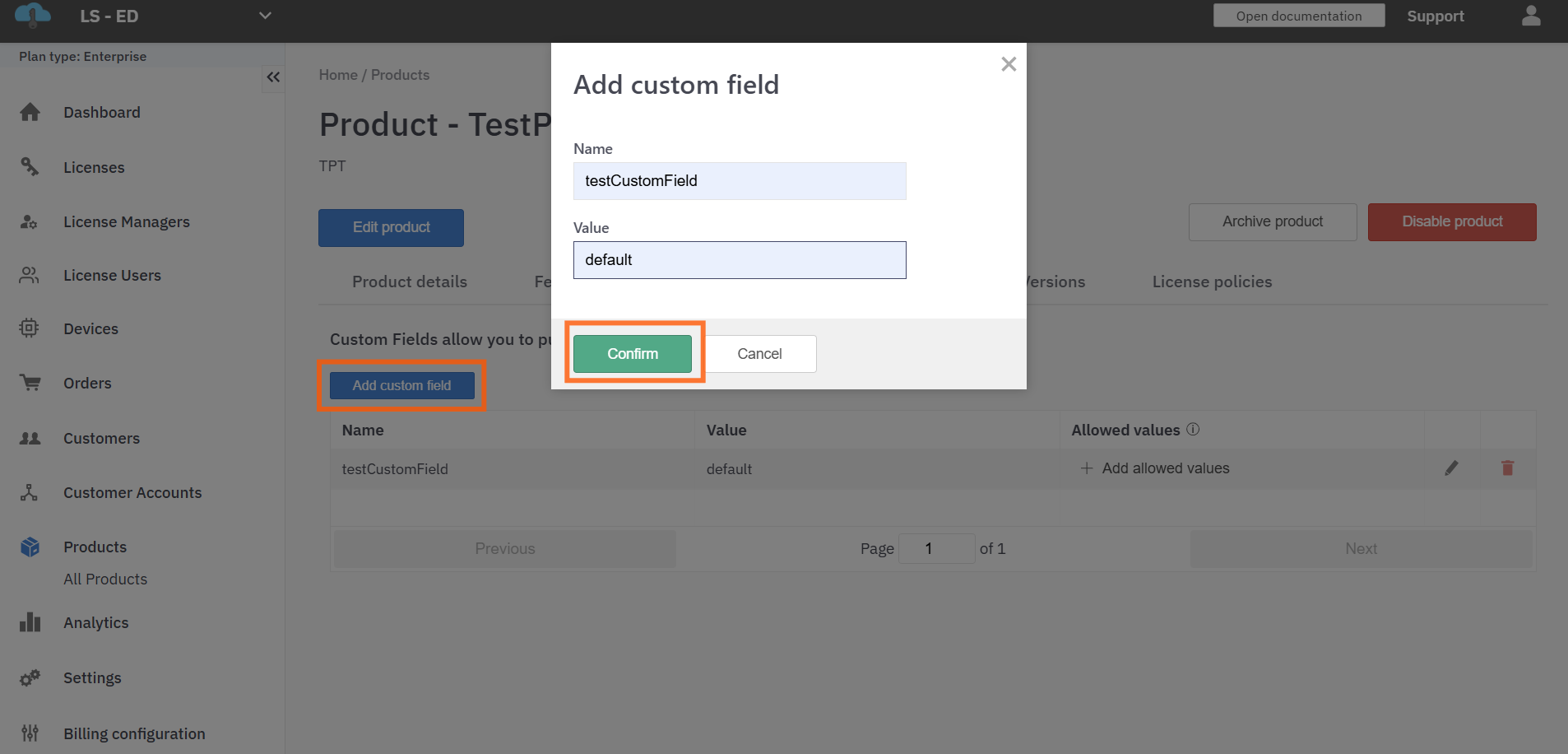
Modify/Delete Product Custom Field
Click on the pencil to edit an existing product custom field, and it will allow you to modify the name and/or the value.
Click on the red trash can to delete a product custom field.
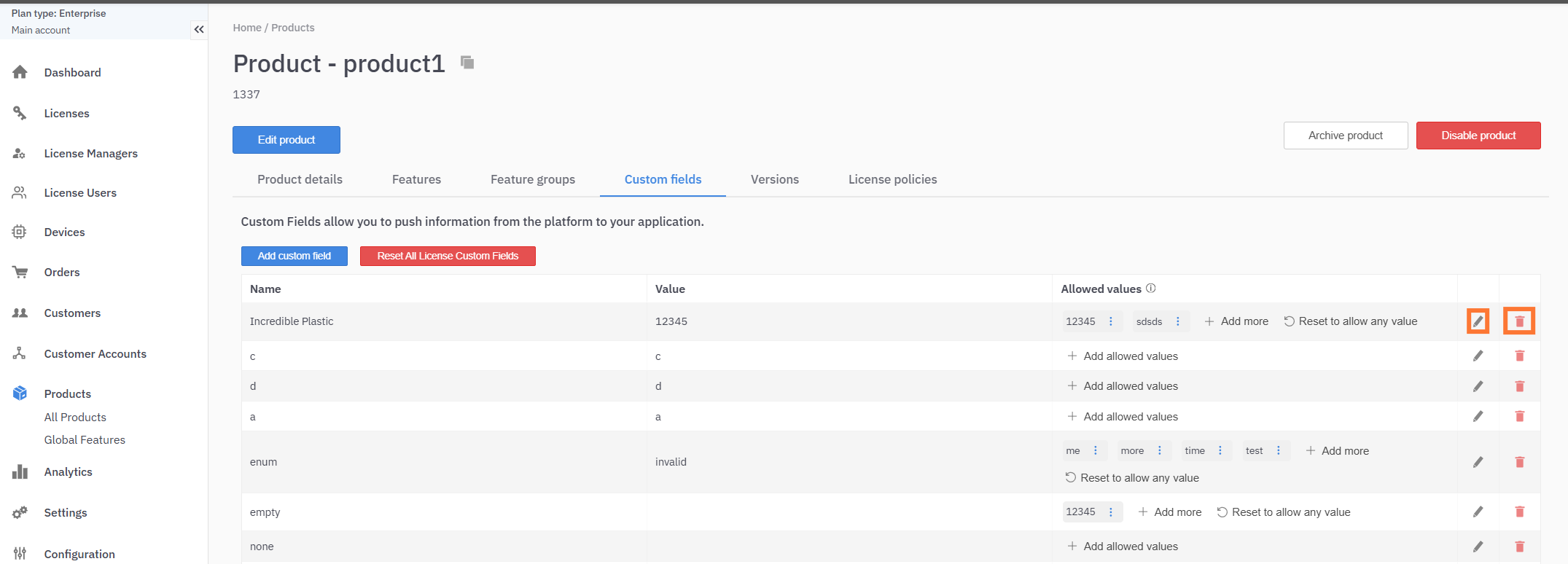
Once you issue a license, you can override the product custom field with a license custom field. You can edit the value of the custom field for any license that was issued.
Allowed custom field values
To enhance data consistency and prevent accidental input errors, LicenseSpring supports optional enumerated (enum) allowed values for custom fields defined at the product level. When allowed values are specified, only predefined values can be assigned to the corresponding license custom field.
This introduces an additional validation layer while preserving backward compatibility and flexibility.
Behavior and Logic
No allowed values defined
Any string
Allowed values defined
Values in the list OR default product custom field value
Allowed values defined on a product custom field
If a custom field on a product has an allowed values list defined:
The associated license custom field can only accept:
One of the list values, OR
The product custom field’s default value.
This restriction helps ensure data integrity by limiting inputs to known, validated values.
Notes:
If a default value is set, it is automatically added to the list of Allowed Values.
Users can manually remove any allowed value, including the current default (prompting selection of a new default).
The default value must always be one of the allowed values.
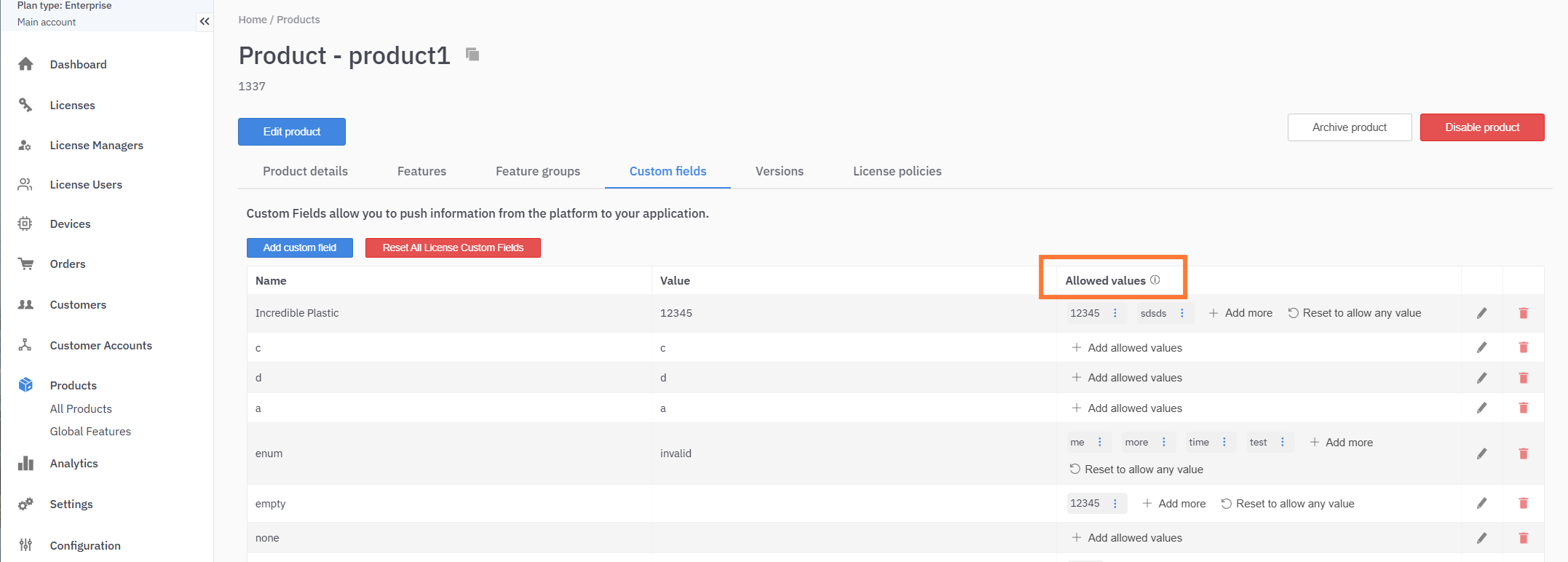
Deletion of allowed values items
If a value (e.g., val3) is removed from the allowed values list on the product custom field:
Existing license custom fields that already had
val3set will retain this value.These values are not retroactively invalidated or overwritten.
However,
val3can no longer be set as a value in new license custom fields or updates.
This ensures stability and backward compatibility across issued licenses.
Configuration via Vendor Platform
Allowed values for custom fields can be configured directly within the Vendor Platform or using the Management API.
When creating or editing a product custom field, vendors can:
Leave the allowed values list empty to allow free-form values.
Define a list of allowed values to enforce validation at the license level.
Set a default value which remains valid even if not in the current allowed vlaues list.
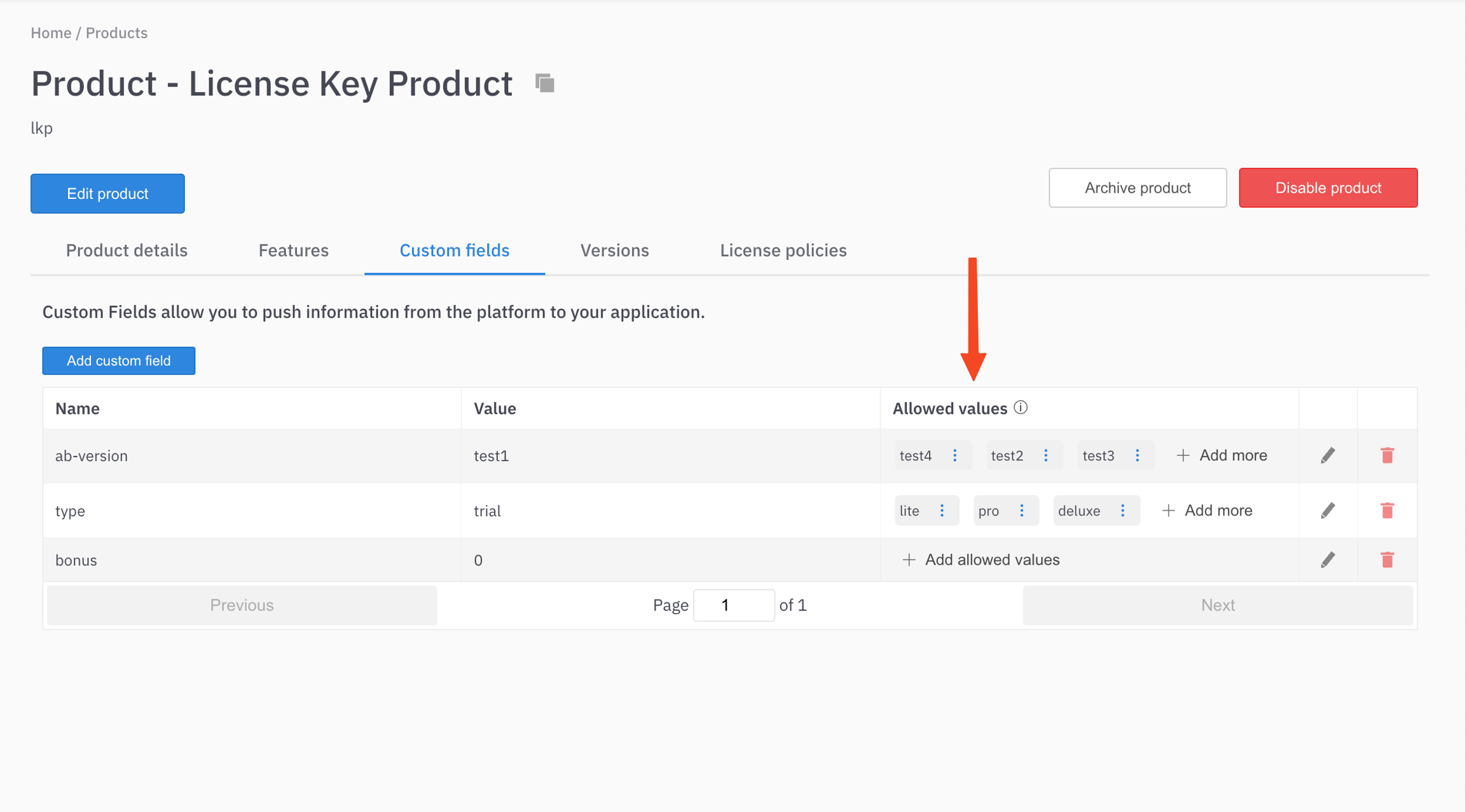
“Reset to allow any value” clears all allowed values with a confirmation prompt.

“Reset All License Custom Fields” This action will reset all License Custom Fields for every license issued under this product.
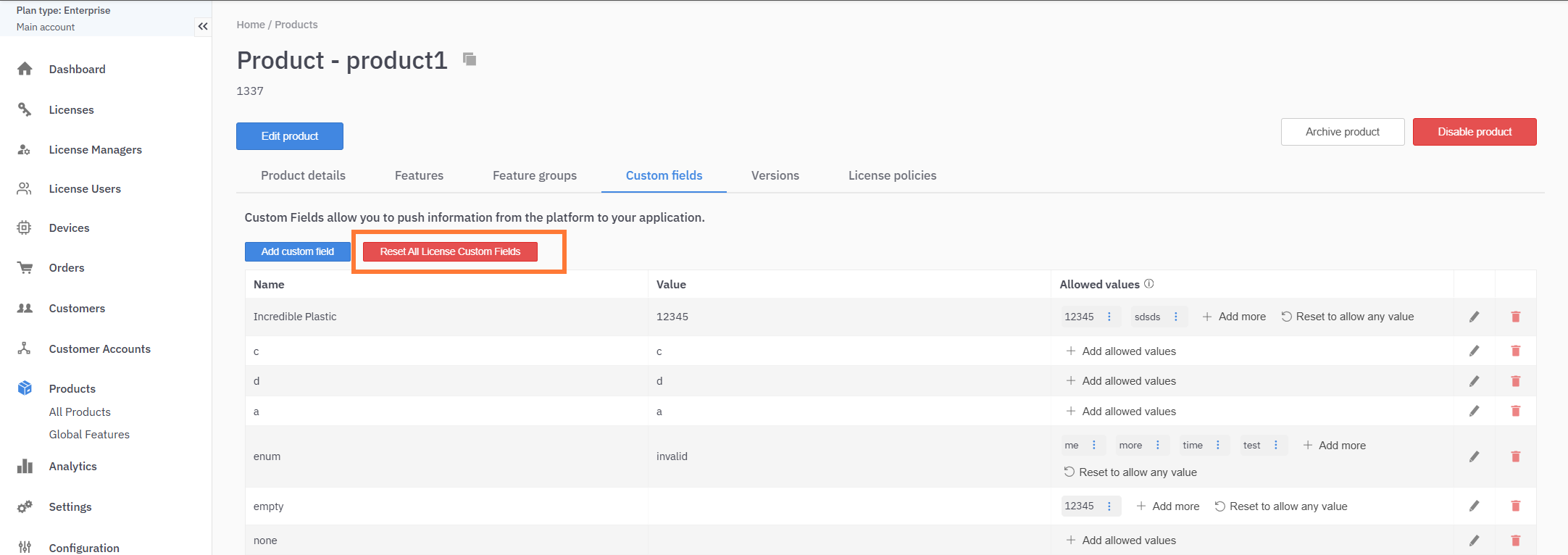
Was this helpful?
